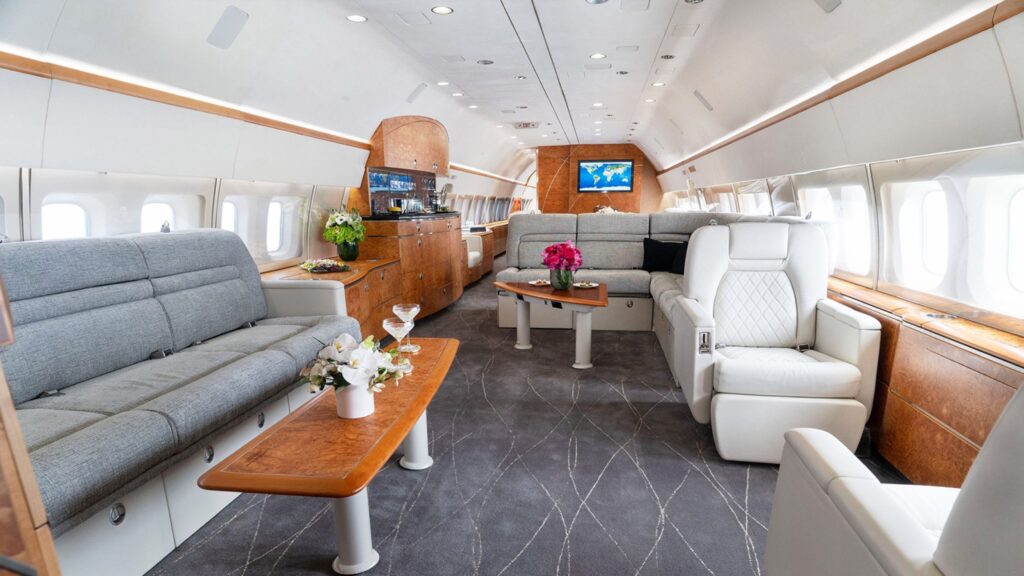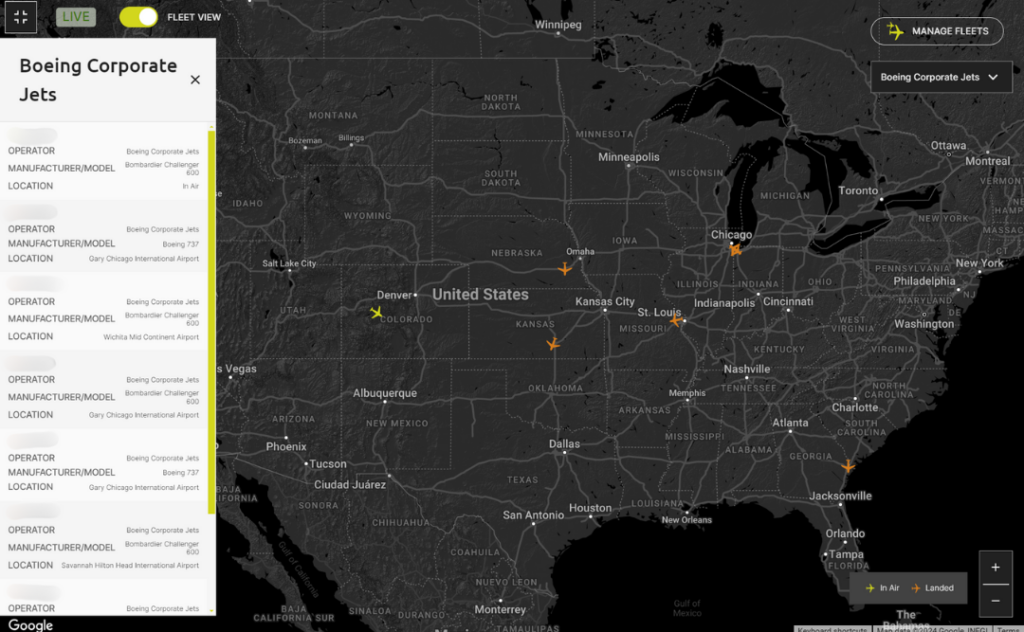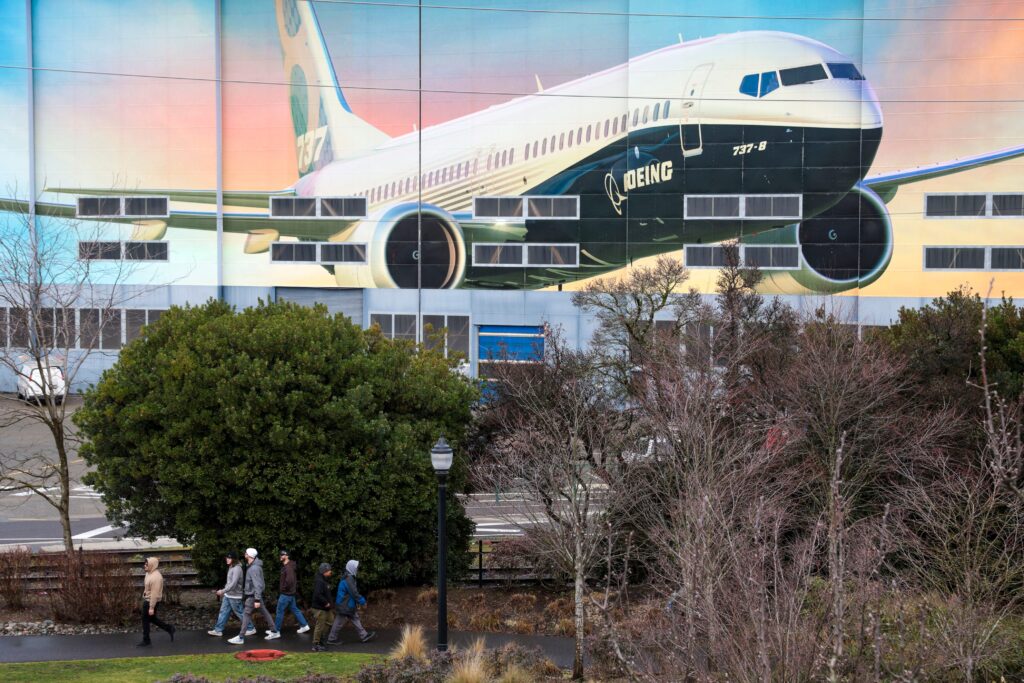- Boeing executives regularly use the company's eight private planes for business and personal travel.
- The fleet's 1,800 flights last year amounted to about $14 million in fuel and 22,500 tons of CO2.
- Boeing says its CEO is "required to use company aircraft for all business and personal travel for security reasons."
Boeing's top executives regularly crisscross the globe on the manufacturer's fleet of private planes, hopping between company offices and assembly lines, visiting international airshows and conferences, and sometimes jet-setting for personal use.
Boeing's corporate planes collectively flew about 4,500 hours across some 1,800 flights last year, according to data from the aviation-tracking website JetSpy. That amounts to about $14 million in fuel and about 22,500 tons in CO2 emissions.
The fleet consists of two 737-700 Boeing Business Jets made by the company's private arm and six private planes made by Canadian corporate aircraft manufacturer Bombardier, including one Global 6,000 and five Challenger 600 planes, according to JetSpy.
Sizable private jets like these typically feature onboard luxuries like double beds, couches, theaters, and giant meeting spaces.

The fleet's top airports include Chicago International Airport, Washington Dulles International Airport, and Boeing Field King County International Airport — all located near Boeing's corporate offices and factories.
Other most-flown destinations include Westchester County Airport in New York and Lebanon Municipal Airport in New Hampshire, both near some of Boeing's executives' homes, per JetSpy.
This mirrors a September report from The Wall Street Journal that found company CEO Dave Calhoun took some 400 trips between Boeing's offices and his homes in South Carolina and New Hampshire since he took the helm in 2020. Calhoun announced his resignation effective year-end following heightened scrutiny over Boeing's quality control.
The Journal also noted Boeing built a small office for CFO Brian West near his home in New Canaan, Connecticut — just a 30-minute drive from the airport in Westchester. West's convenient work setup represented a much different approach to return-to-office efforts previously pushed by the company.

Although it has a particuarly large fleet, the thousands of hours worth of flying isn't all that unusual for giant companies. Especially one like Boeing, which is in the plane business after all.
For instance, JetSpy data shows aerospace company Lockheed Martin collectively flew its five private jets for about 2,700 hours in 2023. And the five-strong corporate fleets operated by PepsiCo and Costco each flew about 1,600 hours last year.
Access to these swanky corporate fleets may be fast and convenient for high-worth VIPs. Still, the carbon impact of private flying has made headlines as activists rally against the jet-setting habits of the superrich, especially celebrities like Taylor Swift and Elon Musk.
Boeing did not respond to a request for comment from Business Insider.
Boeing's private jet use isn't helping its already tainted image
Boeing is under intense scrutiny at the moment over its quality control after an Alaska Airlines 737 Max 9 door plug blowout in January. The incident followed two deadly crashes in 2018 and 2019 of another Max variant, the Max 8, which killed 346 people.
More recently, whistleblower allegations from a veteran Boeing engineer indicate safety concerns on at least 1,400 of the company's 777 and 787 widebody planes.
Boeing's rough run got even messier this month after it was revealed the planemaker set aside more than half a million dollars for executive personal use of its corporate aircraft.
According to an amended SEC filing, the American planemaker did not initially report the $545,520 it spent on personal jet travel in 2021 and 2022 by four top executives — including the $142,315 in personal trips taken by Calhoun.
Boeing wrote in the filing that its CEO "is required to use company aircraft for all business and personal travel for security reasons."
Still, using the plane for a non-work-related vacation is considered a taxable benefit, and the IRS is cracking down on how companies file their jet use, according to the Journal.
